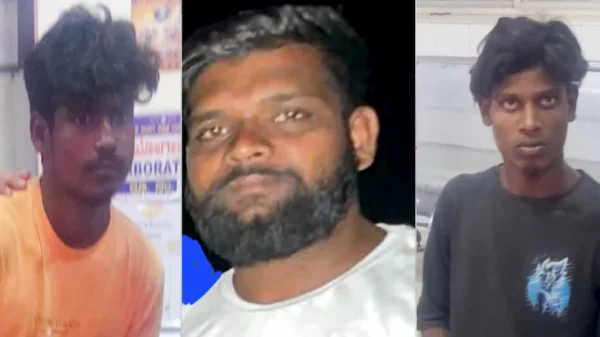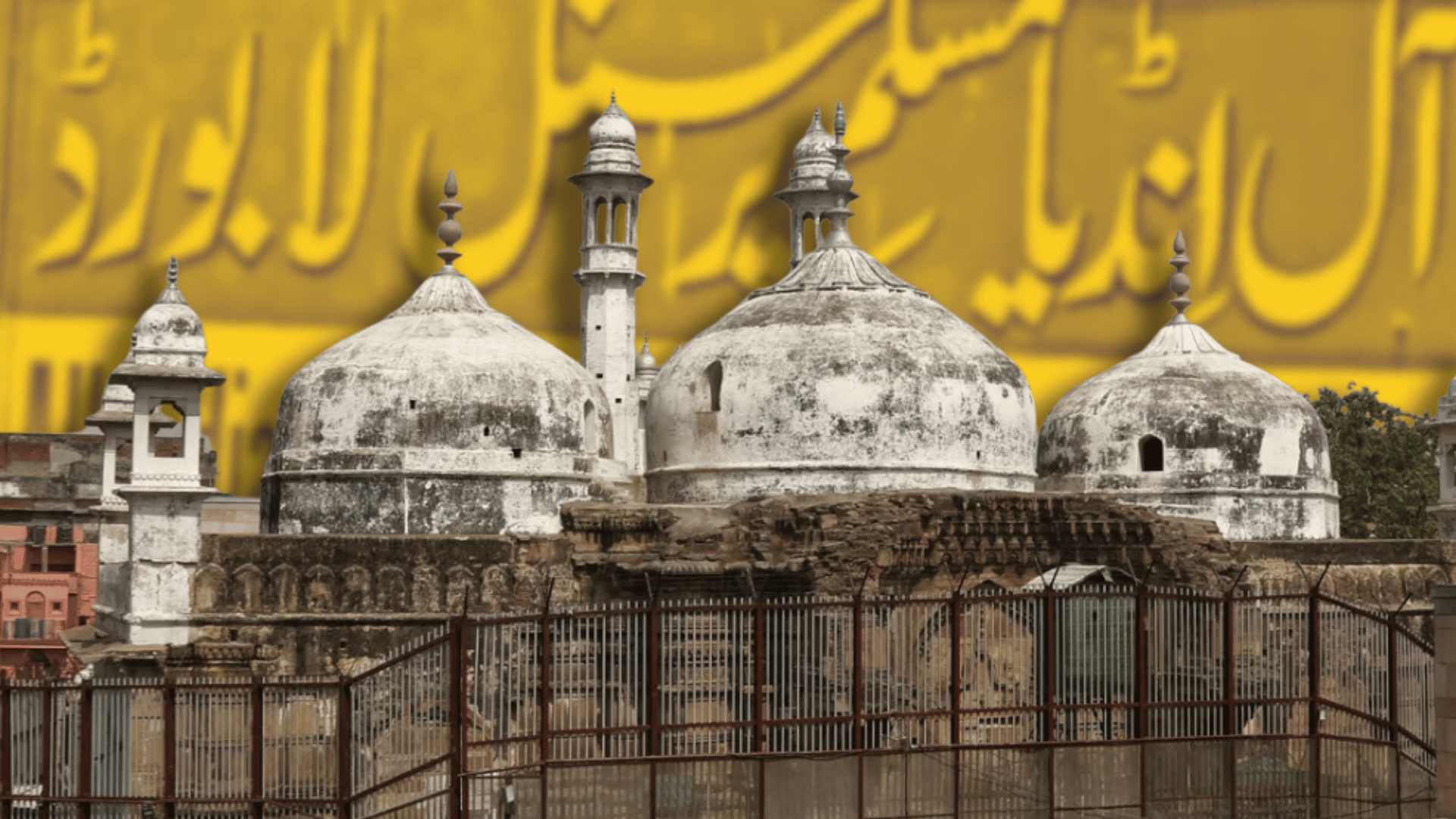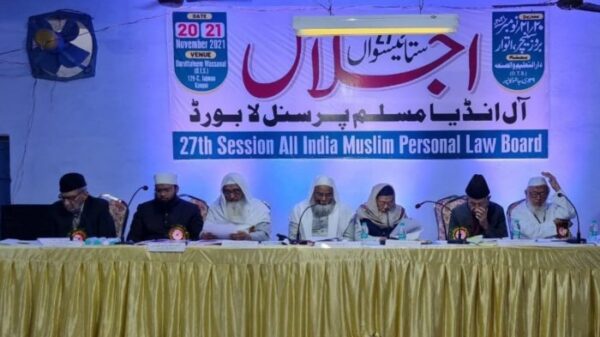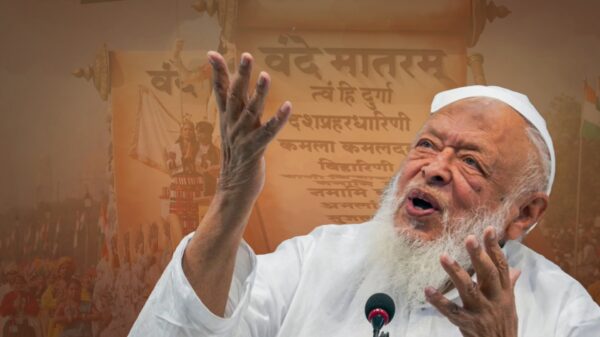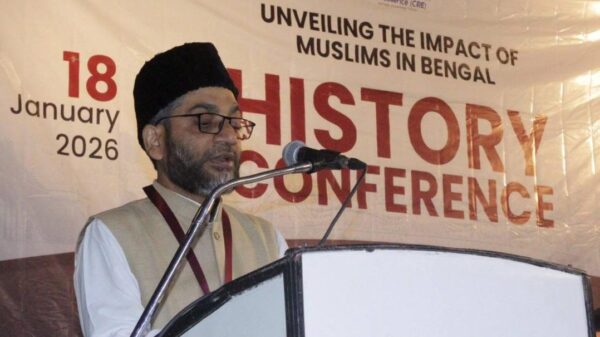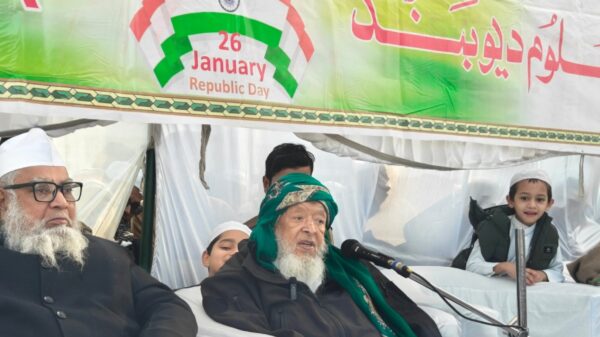At a press conference organized under the Muslim Personal Law Board, Muslim leaders expressed ‘disappointment with various lower level courts for failing to uphold the Places of Worship Act.’
Denouncing the Gyanvapi ruling, the conference of six prominent Muslim bodies claimed ‘faith in judiciary wearing thin’, at a press conference organized by the All India Muslim Personal Law Board (AIMPLB) on Friday. The AIMPLB, conjointly with other Muslim organizations, underlined the need to enforce the Places of Worship Act, 1991, in order to prevent disputes in the country.
The leaders had expressed outrage over the Varanasi District Court ruling. They have voiced concerns over the swift initiation of religious rituals, following the court’s decision to allow the puja in the basement of Gyanvapi mosque, although it provided a seven-day timeframe for the administration to make preparations.
The move “… raises questions about apparent collusion between the administration and the plaintiff, attempting to foreclose any effort by the Mosque Managing Committee to pursue remedies against the District Court order,” the Muslim leaders maintained.
At the press meeting organized at the central office of Jamiat Ulama-e-Hind in Delhi, the leaders raised concerns about the “Supreme Court’s silence” on the Places of Worship Act, 1991, amidst the “trend of unwarranted claims on various places of worship”. They argue that this silence has become a cause for deep worry within the Muslim community in the country.
‘Judgments given in favour of faith’
Maulana Khalid Saifullah Rahmani, the President of the AIMPLB, said, “The notion that a mandir (temple) was demolished to build a mosque is wrong. Islam does not permit destruction of another place of worship to build a mosque.”
“What we are seeing today is an attempt to destroy Hindu-Muslim relations in the name of temple-mosque”, he said.
“In the Babri Masjid decision, it was accepted that the temple was not brought down to build a mosque but the decision was made in the favor of the other side on the basis of ‘aastha (faith)’. Courts should rule on the basis of facts and not ‘aastha,” Rahmani added. He further stated that the rulings have not only affected Muslims but also people of other religions who believe in secularism.
The president of one faction of Jamiat Ulama-e-Hind (JIH), Maulana Arshad Madani said, “The Babri Masjid verdict has set a precedent that establishes that whenever there is any decision concerning the minorities of the country, the preference will always be given to what the majority wants, and it doesn’t matter if it contradicts the law of the nation.”
“Burn the law libraries and law books if you are delivering judgments based on faith or Aastha,” he exclaimed, further emphasizing that if the law consistently favours faith or Aastha (belief) in every case involving minorities, it could render the law ineffective, subsequently jeopardizing the rights of minorities.
The committee’s reaction came shortly after the Allahabad High Court adjourned the hearing on an appeal filed by the Anjuman Intezamia Masjid Committee, which challenged the Varanasi court’s order, at what is presumed to be the largest press conference to be held in recent years. This was after the Supreme Court directed the committee to approach the high court to hear their plea.
The press conference was attended by various prominent figures, including Maulana Khalid Saifullah Rahmani, President of AIMPLB, Maulana Syed Arshad Madani, President of Jamiat Ulama-i-Hind, Maulana Asghar Ali Imam Mehdi, Ameer, Markazi Jamiat Ahle Hadith Hind, Maulana Syed Mahmood Asa’d Madani, Chief of Jamiat Ulama-i-Hind, Malik Mohtashim Khan, Naib Amir, Jamaat-e-Islami Hind, Asaduddin Owaisi, MP, President of All India Majlis Ittehadul Muslimeen, Maulana Mufti Mukarram Ahmed, Shahi Imam, Fatehpuri Masjid, Dr. S. Q. R. Ilyas, Spokesperson & Member of the Working Committee for AIMPLB, and, Kamal Farooqui, assistant spokesperson for AIMPLB.






























